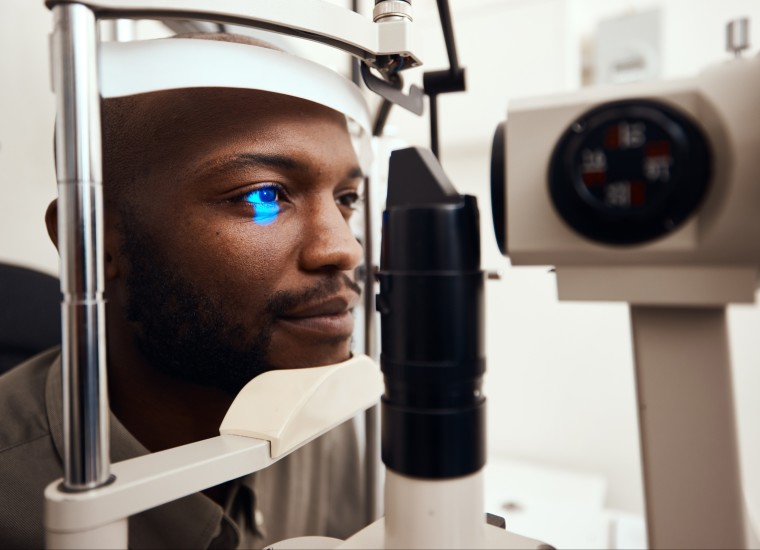All Categories
Featured
Table of Contents
Eye health is an important part of overall health, and routine eye examinations play an important function in keeping excellent vision throughout life. Each age has particular demands and risks associated with eye health and wellness, making it vital to comply with tailored recommendations for eye exams. Here's a comprehensive review of exactly how typically eye tests must be scheduled for different age.
After the initial exam, youngsters must have a 2nd eye evaluation around age three, when they can better take part in testing and evaluation. If no vision problems are determined, the following exam is suggested before beginning school, typically around age five. Early discovery of concerns can bring about prompt intervention and support healthy visual advancement.
Moms and dads must seek indicators of vision issues, such as problem checking out the blackboard, scrunching up your eyes, or suffering headaches. It's vital to set up an eye exam quickly if any of these signs arise. Youngsters that participate in sporting activities might benefit from yearly eye exams to make certain optimum aesthetic efficiency and safety and security throughout activities.
![]()
Young people frequently experience electronic eye pressure due to extensive screen time, causing symptoms like dry skin and pain. If you observe these symptoms, seeking an eye test is important. An eye treatment professional can provide options, such as computer glasses or way of life changes, to minimize strain.
For people with health and wellness conditions like diabetes or high blood pressure, more constant tests may be essential. Routine surveillance is necessary for early detection and monitoring of prospective difficulties that can influence vision.
Senior citizens may likewise experience changes in their aesthetic understanding, such as difficulty seeing in low light or differentiating colors. Regular eye tests permit prompt intervention and aid maintain independence and lifestyle.
Babies (0-2 Years)
Babies undertake substantial visual growth in their early years, making very early eye evaluations critical. The American Academy of Pediatrics suggests that children have their very first eye test at regarding 6 months of age. This initial go to helps recognize any kind of prospective vision problems, such as strabismus (gone across eyes) or congenital cataracts, which can impact development if not addressed early.After the initial exam, youngsters must have a 2nd eye evaluation around age three, when they can better take part in testing and evaluation. If no vision problems are determined, the following exam is suggested before beginning school, typically around age five. Early discovery of concerns can bring about prompt intervention and support healthy visual advancement.
Children (3-18 Years)
For school-aged children, routine eye tests are essential for both academic success and general wellness. Kids must have their eyes checked each to two years, depending on their private requirements. Schools often conduct vision testings, but these do not change extensive eye exams by an eye care specialist.Moms and dads must seek indicators of vision issues, such as problem checking out the blackboard, scrunching up your eyes, or suffering headaches. It's vital to set up an eye exam quickly if any of these signs arise. Youngsters that participate in sporting activities might benefit from yearly eye exams to make certain optimum aesthetic efficiency and safety and security throughout activities.
Youthful Adults (19-39 Years)
During young adulthood, numerous people enjoy fairly steady vision, however that doesn't mean eye treatment can be ignored. Young person must arrange detailed eye examinations every 2 years. Those who wear contact lenses or have a household history of eye illness should take into consideration yearly examinations.
Young people frequently experience electronic eye pressure due to extensive screen time, causing symptoms like dry skin and pain. If you observe these symptoms, seeking an eye test is important. An eye treatment professional can provide options, such as computer glasses or way of life changes, to minimize strain.
Adults (40-64 Years)
As people enter their 40s, adjustments in vision can end up being more apparent, particularly presbyopia, a problem that makes it challenging to concentrate on close things. Grownups in this age group need to arrange eye tests every one to two years. This is also the age when numerous eye illness, such as glaucoma and diabetic person retinopathy, can start to establish.For people with health and wellness conditions like diabetes or high blood pressure, more constant tests may be essential. Routine surveillance is necessary for early detection and monitoring of prospective difficulties that can influence vision.
Elders (65 Years and Older)
Seniors go to a boosted threat for numerous eye illness, consisting of cataracts, age-related macular degeneration, and glaucoma. It's recommended that people aged 65 and older have an eye test a minimum of annually. Early discovery of these problems is critical, as many can be dealt with properly if caught early.Senior citizens may likewise experience changes in their aesthetic understanding, such as difficulty seeing in low light or differentiating colors. Regular eye tests permit prompt intervention and aid maintain independence and lifestyle.
Final thought.
Focusing on eye care and regular examinations makes sure that people can enjoy clear vision and a better high quality of life, making eye wellness an essential element of long-lasting health. Regular consultations with an eye treatment specialist will pave the means for much healthier eyes and a brighter future.Table of Contents
Latest Posts
Selecting the Right Location: What to Think about for Wedding Celebrations, Conferences, and Occasions
Published en
1 min read
Host Your Perfect Event: Venue Rental Alternatives for Every Celebration
Published en
1 min read
Discover Leisure at the Claridge Indoor Swimming Pool
Published en
1 min read
More
Latest Posts
Selecting the Right Location: What to Think about for Wedding Celebrations, Conferences, and Occasions
Published Mar 24, 25
1 min read
Host Your Perfect Event: Venue Rental Alternatives for Every Celebration
Published Mar 12, 25
1 min read
Discover Leisure at the Claridge Indoor Swimming Pool
Published Feb 10, 25
1 min read